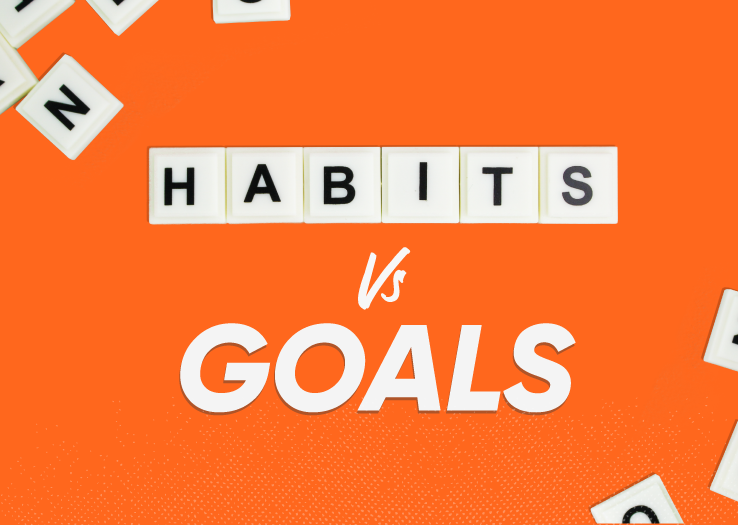Blog

Habits Vs Goals
“Your habits will determine your future” – Jack Canfield
By now, most of you will have set a season goal. For the most part these will be either short term goals to take you through the first cycle of the season, mid-term goals for around March/April or end of season goals for summer competitions. It’s great that you have taken the time to pinpoint exactly what times you wish to achieve, competitions you want to go to or podiums you want to stand on and I expect you have laid out a road map as to how to achieve this. Whether it be to improve starts and turns, increase under waters in speed and distance, work on front-end/back-end speed or improve overall strength and stability on land, all these actions require you to start building good habits.
Habits are things that we consistently do and not all habits are good. Often, bad habits are the hardest to undo as sometimes we don’t realise that we do them. Starting to build a new habit can be equally as difficult and a lot of people (in all aspects of life) quit before they can make or see a change. On average it can take 2months (18-254days) for a new habit to become an ingrained automatic trait. The speed at which we can make this change is determined by both how difficult it is to achieve (skill level) and how much time we dedicate to making the change. For example, if you want to be able to do 15m on every underwater;
1. If you currently go 14m on every under water, then the extra 1m will not take long to adapt to and the habit will be set quickly.
2. If you currently cannot do fly kick, then it will take some time to learn, adapt and implement your skill into a daily habit.
3. If you only try to do 15m for 100m of a session once a week, then it will take a long time to develop the habit. You are also practicing more underwaters with a ‘bad habit’ than a good one.
When starting a new goal, try to breakdown the task into more manageable steps. By doing this, you can see improvements quicker and gain a sense of accomplishment which will motivate you to keep going. Using the above example (underwater kicking), perhaps 15m off every wall for the entire session straight away is both overwhelming and unachievable. If we go into session one, with a goal of every underwater being a minimum of 7.5m, if this is an achievable step and something we don’t yet consistently do, then we can start to lay the building blocks towards a new habit. To make something transfer from a goal to a habit, we need to implement it daily so that even on days of mental and physical fatigue we have the discipline ingrained to get the minimum done. When concentration laps, our autopilot allows us to still get the work done to the highest skill level.
One of the best ways to commit to your goal and develop the habits towards achieving it is by vocalizing your aspirations to teammates, coaches, and parents. This will help to hold you accountable for your actions and involves those around you to give you a reminder and support should you let the bad habits start to creep in.
Another method is to write your goal down and lay out the steps involved in achieving it. Put a visual reminder of the goal somewhere you will see it everyday. Stick a post-it note to your bathroom mirror, set the lock-screen of your phone to the words you need to hear. You can also check in on your process goal and adapt the steps if necessary. Sometimes it becomes apparent quickly that we need to implement more manageable steps or add in some extra stages. Sometimes we realise the goal is too easy and the end goal can be elevated higher than we first imagined.
Another important step in building new habits is creating the correct environment to make a change. Often this also includes adapting your attitude to one that will both allow a change and have the discipline to make this a reality. Often people skip easy tasks in favour of hardwork. They don’t see value in doing simple things such as pre-pool, stroke specific drills in the pool or stretching post session, however main sets in the pool and heavy lifting in the gym is a priority. Dismissing the easy tasks often creates an environment where you allow yourself to miss out on opportunities to improve. By having the discipline to invest in your own progress is often viewed as uncool by those who lack discipline themselves.
So for those of you who have set yourself a goal and outlined the process needed to achieve these goals, are you working on developing the good habits daily that you need to implement change or are you letting bad habits creep back into your daily routine? Do you have the discipline in your environment to allow yourself the best chance to succeed or do you allow yourself to accept excuses as to why you cannot complete a task? Are you the teammate your friends deserve in support of their goals or are you the reason bad habits out number the good ones?

